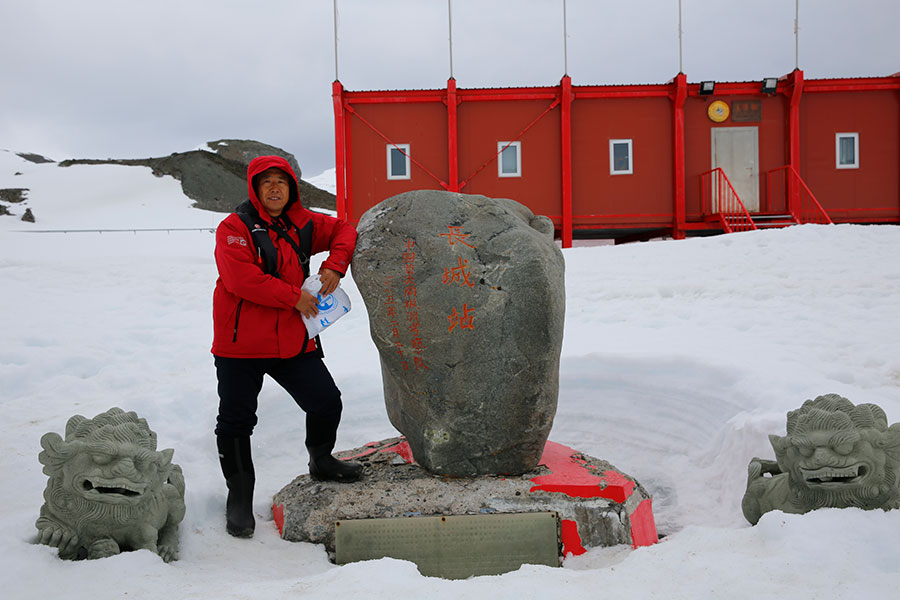
From the People's Daily App.
This is Story in the Story.
Climbing, skydiving and paragliding are sources of wonder for 64-year-old Ding Zhendong, a retired editor from North China's Inner Mongolia autonomous region.
"Real life begins after retirement," Ding said. He first tasted adventure tourism in 2015 when he drove a minibus with a friend from Inner Mongolia to the Tibet autonomous region.
Despite difficulties during the trip, the adventure was worthwhile for Ding thanks to the stunning landscape and thrilling experience. Since then, he has driven to Tibet by four different routes and visited the Arctic and Antarctic.
"Adventure helps me learn the limits of my body and boosts my physical strength. Now more retirees are joining our expedition team," he said.
Ding is among a growing number of Chinese who want more than relaxation from their travels.
As Chinese tourists become wealthier and more experienced, there is a growing desire to explore the world and try more adventurous activities, from African safaris to polar adventures.
Today’s Story in the Story looks at adventure travel and how it’s a niche tourism, which includes activities like caving, climbing, cycling and hiking.

Ding Zhendong in South Antarctica. (Photo: China Daily)
Market consulting firm Allied Market Research estimated that the global adventure tourism market was valued at $586 billion in 2018 and is projected to reach around $1.63 trillion by 2026.
"Chinese travelers are playing an increasingly important role in the global adventure tourism economy," said Han Bo, chairman of the China Adventure Association.
According to a report released by the association, there are 130 million to 170 million people on the Chinese mainland participating in outdoor adventures, with annual growth of around 15 percent.
Among them, the number earning an income from adventure travel reached 60 million. More than 100,000 enterprises are dedicated to providing services for adventure seekers, the report said.
"Only a few Chinese such as scientists and archaeologists were engaged in adventure travel in the past," Han said, adding that more ordinary and uninhibited people aged between 15 and 60 have now joined them to explore the unknown.
Luo Hong, 52, founder of leading Chinese bakery chain Holiland, has journeyed to Africa 53 times, to the Arctic four times and the Antarctic twice, photographing wildlife and nature to raise public awareness of environmental protection.
When he first visited South Africa in 2001, the locals asked him: "Are you Japanese?" They were shocked when he answered he came from China as few Chinese tourists visited Africa at that time.

An upward view of the parachutists at the 17th Asian Parachuting Championship on Sept 7 in Taiyuan, Shanxi province. (Photo: Xinhua)
Things are different now. "This year, when I had a meal in a barbecue restaurant in Kenya, the locals sang the popular Chinese folk song Jasmine Flower in Chinese. I was very happy," he recalled.
Han said: "Seeking adventure is one of the best ways to satisfy people's spiritual needs. The popularization of adventure travel reflects China's improved national strength and people's better lives.
"With a more affluent life, a growing number of Chinese will be keen to chase thrills the world over."
China's younger generation is turning its back on the traditional holiday routes of museums and shopping malls in favor of new and adventurous experiences.
Curiosity is Bai Yu's default setting. Since 2014, his sense of adventure has prompted him to travel to more than 20 countries and also led him to quit his job in order to make a solo cycle ride through the northern part of the Tibet autonomous region.
"I enjoy the feeling of traveling alone, totally undisturbed," he said. "I especially like hiking in deserts where there are no signposts – that's truly 'living in the moment'."
According to a report by Jing Travel, an online tourism industry observer, the number of millennials undertaking solo journeys has risen by eight percent year-on-year.
"People don't want to travel to visit crowded tourist sites, instead they are looking for novel experiences that will allow them to see new cultures and hear exceptional stories," said Xu Zhiyun, from Trip.com Group, China's leading online travel agency.
(Produced by Nancy Yan Xu, Brian Lowe, Lance Crayon and Paris Yelu Xu. Music by: bensound.com. Text from China Daily)


